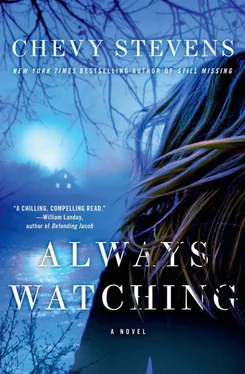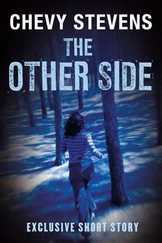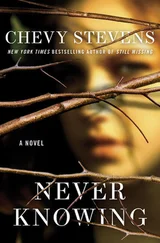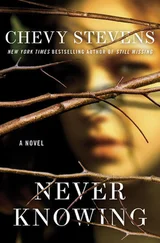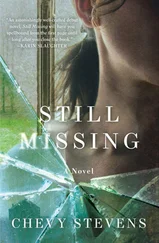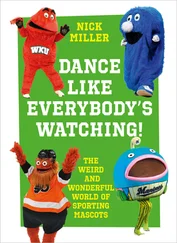I heard a crack. And Aaron let go of my legs. I looked over my shoulder. Aaron was clutching his side, his face stunned as he crumpled to the ground.
Joseph walked over and stared down at him, the gun by his side, his face expressionless.
Daniel was running toward Joseph. He tackled him.
The men fought on the ground while I clambered to put my car in gear. Joseph broke away and ran toward the truck, Daniel hard on his heels.
Without looking back, I stomped on the gas and tore out of the driveway.
I drove as fast as I could on the narrow gravel roads, fishtailing around one corner and nearly going over an embankment. When I passed an area of logging, I noticed a large excavator and flashed to an image of Robbie’s excavator at his house down by the septic field—the dirt pile fresh. Now something stuck out as odd. I tried to bring back the scene in my mind. Another image came forward: The lids for the new tanks were covered. From what I knew of septic systems, it was better to leave the lid exposed. And the septic wasn’t even hooked up yet.
What if they buried him in the tanks?
When I got to Robbie’s, I ran to the excavator. I was right: The lids for the tanks were under the mound of dirt, but the pipes out to the field were uncovered. One came up beside the mound. I heard something, a muffled sound from the end of a pipe. I focused on the sound, called, “Robbie?” Then I heard the noise again, a faint call for help.
I yelled down, “Hang in there,” and called 911, shouting directions.
I grabbed a shovel from the shop and began digging, yanking off my coat and tossing it to the side. It would take forever to move enough dirt to remove the lid. I looked at the excavator. Were the keys still in it?
I climbed onto the machinery and found the keys still in the ignition. In their haste, they must have forgotten them. I turned on the big machine, the diesel engine loud and drowning out the thudding of my heart. I hoped I still remembered how to run it. My hands sweaty on the levers, I tried to bring the bucket up, but I kept digging it farther into the ground, catching it on a boulder. Finally, I figured out how to lift the bucket, then scoop the dirt and move it to the side. When the hatch was in sight, I shut the machine off and ran over to the tank.
I began to try to tug and pull at the concrete lid, but it was almost two feet by two feet—and heavy. How was I going to get Robbie out?
I looked back at the excavator resting near me. Could I use it somehow? I caught sight of a heavy metal chain under the seat, with two hooks on either end. I dragged the chain over to the bucket, attaching one end on the teeth and the other on the hatch. Then I clambered back onto the machine, and jerking and bobbing, my hands still unsteady, I brought the bucket up. I lifted the hatch off, with a whoop of relief, and dropped it to the side. I shut the machine off and ran back to the opening, kneeling as I yelled, “Robbie, you okay?”
My brother’s voice floated up. “Brew—he’s hurt.”
“I’m coming down.”
I lowered myself into the tank, which didn’t look deep, bracing my arms on the sides of the opening, worried I would land on Robbie. But when he saw my legs he said, “I’m over here,” from the other end of the tank. I dropped with a thud and found myself in an area about four by eight. In the dim light from above, I noticed Robbie lying in the corner, his back propped up on the wall of the tank. Brew was lying beside him.
Now I also realized that Robbie’s shirt was off and he was holding it in a bundle against Brew’s shoulder. The animal’s breathing was rapid, his side rising and falling, air coming out in a chuff.
Robbie said, “Can you help Brew?” His voice was tight, rushed, the words tripping over themselves in their haste to get out.
I crawled over, saying, “Easy, boy,” when Brew whined. I checked his pulse, using the femoral artery on the inside of his thigh. It was weak and thready. The tank was filled with the scent of blood mingling with dog breath and fur. I could also smell Robbie’s body scent, sweat and dirt, diesel from his excavator.
Still speaking fast, Robbie said, “Brew attacked Joseph. I tried to stop the bleeding.”
I felt along Brew’s ribs and under his front leg. My hand was covered with warm sticky blood. I examined his gums. Even in the dim light, I could see they were pale gray. I pressed the flat part of my finger against them, checking his capillary refill time.
Five seconds. Far too slow.
The bullet had probably hit a small vein and he was bleeding internally. If it had been a main artery, he would’ve died in minutes. The heavy breathing was not so much pain as his body working hard to make oxygen. He’d just get sleepier and sleepier until he finally passed out, and then died. Likely soon.
I said, “It doesn’t look good, Robbie.”
“Fuck.” He rested his head on the back of the wall, looked upward. “Fuck. Fuck.” His voice was thick, like he was fighting tears.
My own eyes filling with tears, I said, “I called 911. They’re on the way.”
“Is Brew going to make it?”
I looked back down at the dog. His breathing had gone shallow. His eyes half-closed, his tongue lolling. “No, I don’t think he has long.”
“Shit.” Robbie took a deep breath, like he was trying to brace himself, then carefully lifted the dog up, so he was partway across his lap. Brew gave Robbie’s hand a small lick, then closed his eyes all the way. His breathing slowed.
“Good boy,” Robbie said. He bent down and pressed his lips to Brew’s head, gave him a hug. “You want to go for a walk? Let’s go for a walk, buddy.”
Brew let out a sigh. A few moments later, he was gone.
* * *
We sat in silence, my hand still on Brew’s side, while tears rolled down my face. I looked only at the dog, trying to give Robbie some space, but I heard him sniff a few times and clear his throat. There was a sense of emptiness in the tank now, a hushed soundless quiet that made every movement seem louder. Brew’s body was already cooling; his life was over. Still, I stroked his soft fur, mentally saying my own good-byes, thanking him for being a friend to my brother, remembering him trotting over, bumping his wet nose into my hand.
After a few minutes, Robbie wiped his face, leaned over, and whispered something in Brew’s ear. He then eased Brew’s limp body off his leg, gently resting his head down on the ground. He sat back up, with a groan.
I said, “Are you okay?”
He wheezed. “My ribs—I think some are broken.”
“I should have a look.”
In the dark, my hand touched Robbie’s side, but I couldn’t feel any blood, or protrusions.
He sucked in his breath. “Shit.” He rubbed at his chest. “I keep getting these fucking pains in my chest.”
Was he having an anxiety attack? “What does it feel like?”
“This pressure. I can feel it in my arms and jaw, around my back too. Like someone’s squeezing me. Hurts like shit—makes it hard to breathe.”
Oh, no.
“You could be having a heart attack. Are you feeling light-headed?”
Almost on cue, his head dropped forward, and he slumped down.
“Robbie!”
I quickly moved Brew’s body to the side and lowered Robbie so he was lying flat, checking his vitals. His breathing was shallow—then stopped. I started CPR immediately, saying in between chest compressions, “Come on, Robbie.”
Please, God. Please help us.
In the distance, I heard sirens.
* * *
I rode in the ambulance with Robbie down to Victoria. They had him on oxygen even before they got him out of the septic tank, and gave him chest compressions all the way to the hospital. They brought him back a couple of times, but they were still giving him chest compressions as they wheeled him into emergency. For the next while, I paced the hallway, waiting for news. All I could think about was how many years we hadn’t stayed in touch, how many years I’d thought it was just easier that way.
Читать дальше
